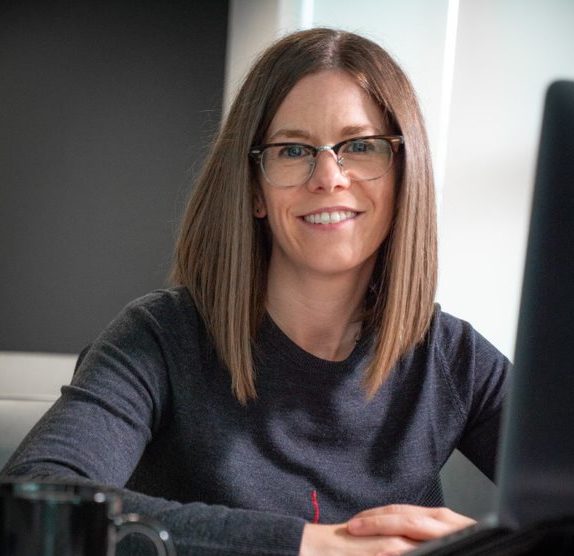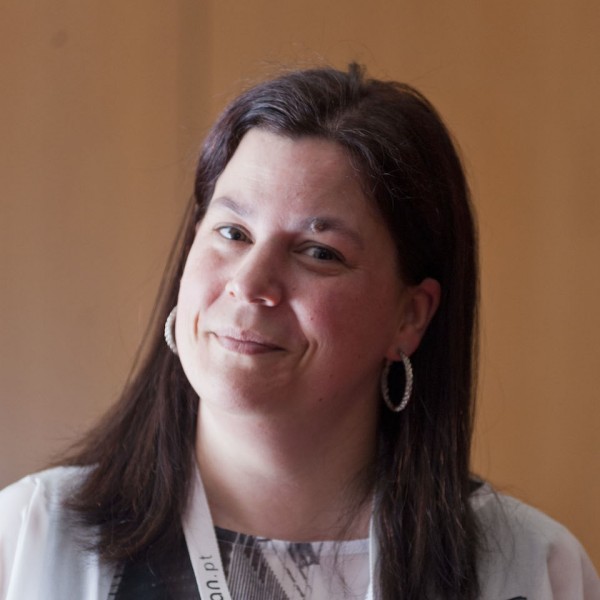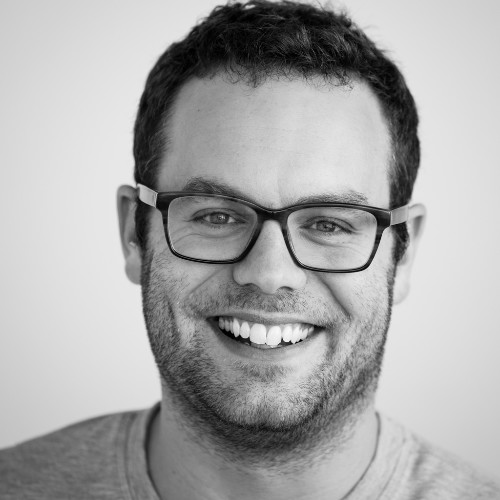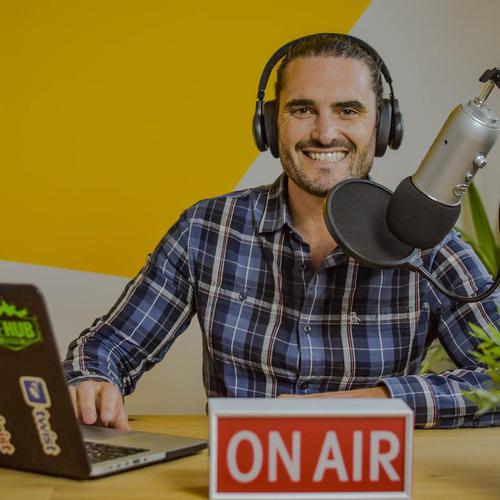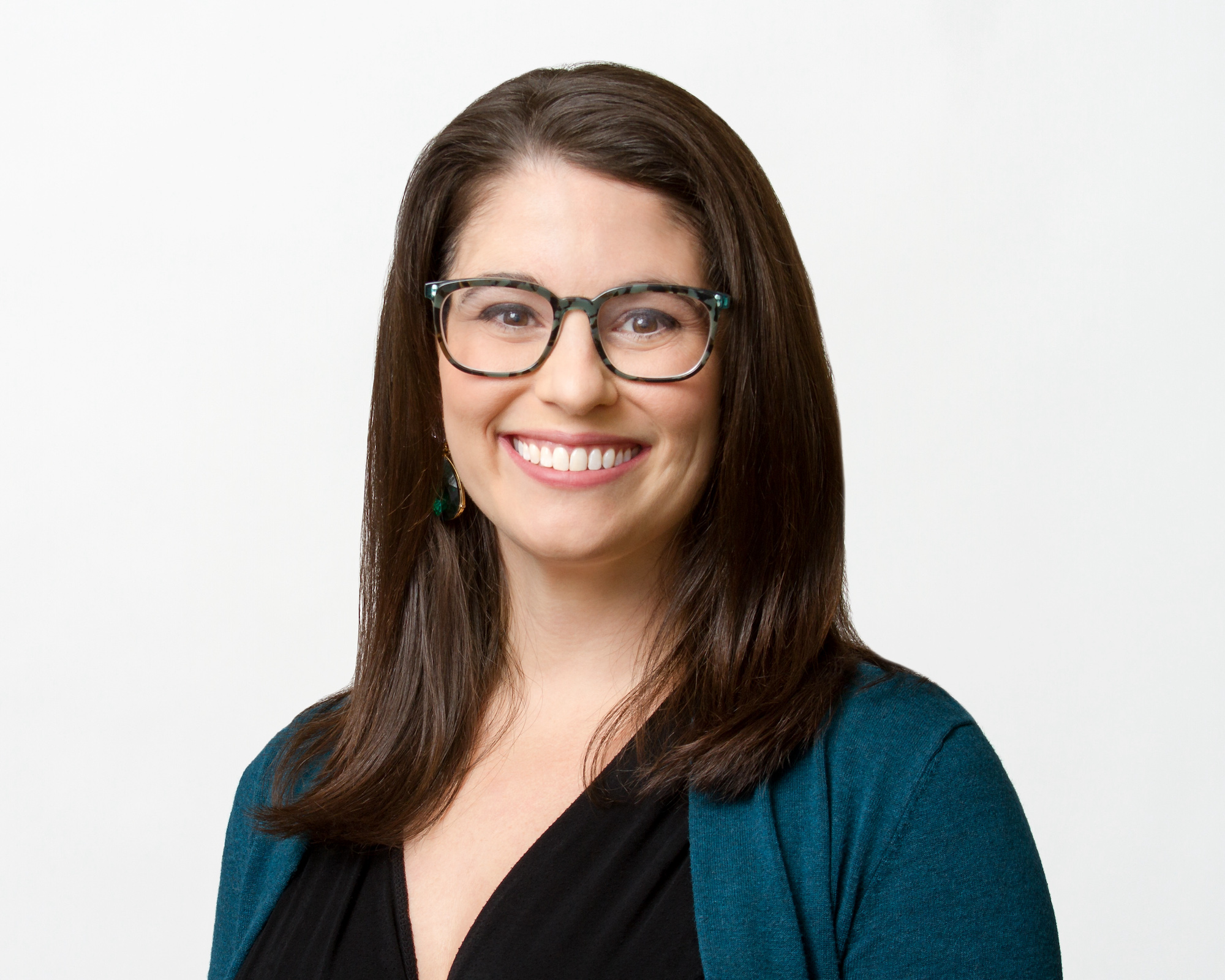Nicky Hoyland leads a team that is trying to pull the best out of digital work experiences.
She says that we need to move away from the one-size-fits all mentality. The beauty of digital tools is that everyone can have their own personalized experience, and yet everyone can still be on the same platform. Rather than forcing everyone to do the same thing, we can open up and offer autonomy to people.
Yet, technology that is not human-focused is pulling in the opposite direction. It is trying to cram the same experience for everyone while removing the high-fidelity experiences we get while being in the same room.
The right to disconnect
Nicky and I talked about how team members should be able to set their own calendars, but also be able to disconnect from work and notifications. Flexible work often means that you are just working all day long. But we work better as humans when we are able to focus on specific tasks and then recover in between or fully switch off afterwards.
Digital culture and collaboration
Nicky said that we can “enable culture through technology rather than define it”. This is an important point to keep in mind as we move forward into the digital workplace.
Nicky said that leaders should also keep an eye on how teams collaborate. Digital collaboration often amplifies people’s tendencies to be either quieter or louder.
Links
Welcome back to The Digital Workplace podcast. Today our guest is Nicky Hoyland. She is the CEO of Huler. Hey Nicky, how are you today?
Yeah, I’m good. Thank you, Neil. How are you?
I’m excellent. It’s been fun to get to know you and get to know your company a little bit. But first, I’m convinced you’re a real human but we need to do this capture question to affirm your humanity. Nicky, your question is, what is your favorite weather season where you live?
Well, I live in Manchester in the UK, which is pretty notorious for rain and gray skies. So, I would say anything that’s blue sky, a little bit of sunshine, but not too hot. Because I think 30 degrees in Manchester is very different to 30 degrees by a pool. It’s relaxing on holiday. So, yeah, I’ve got to say that would be about my favorite season. So, probably late summer, early autumn.
That’s great. I’m totally with you. I’m here in Indianapolis, Indiana, and we have all winter that is gray, gray, gray, gray, and it’s really tough to deal with. So, anytime it’s great. I’d even do like cold, like zero degrees is fine, as long as it’s sunny. I like sunny, to get that out.
Yeah. I like going out for a cold run in the winter. It’s icy cold but the sun’s out and that’s really nice.
I hear that.
No rain, no snow.
Yeah, great. Nicky, tell us a little bit about your company, the size you’re at, and what your product is.
Yeah, of course. So, as I say, I’m the CEO of a company called Huler. We’re a tech company that enables a ‘people’s first’ approach to technology, whether that’s some bespoke development, or whether that’s our hub, which is Huler Hub, which is a digital launchpad to get to everything that you need in two clicks. So, rather than wasting precious, precious time of 16 clicks or losing, ‘Was that in Slack? Was that in email? Did we send it in mail? I’ve bookmarked it’, it’s a way for you to curate what matters to you, both as the organization for your people and allowing them to get the work they need quickly, but also you as the individual and how you collaborate with people inside your team. All of that’s accessible, any device, any browser, any type. I think there’s this true blend that we’ve started to see over the past many months of, actually, how do we enable people to work effectively, but also understand that they’re a human being. They are going to pick up this device. They are going to look at some things inside their personal life and we need this flex inside this new ‘now will work’ not ‘future of work’. And how do we enable technology to just allow us to be more collaborative and more effective rather than restrictive and kind of limit culture and how we work.
You describe yourself as a ‘people first’ approach to technology. What ways has the general march of technology strayed away from that?
I think at times we forget that we’re dealing with human beings. I think we can start to look at algorithms and automated approaches to some of the tasks that we run. We tend to kind of want ‘one size fits all people’, whether that’s in how they want to personalize what matters to them, the content that they see, the times of day in which they do things, how they might feel at a certain time, and how technology can enable that. And also, the amount of screen time that we get as human beings. I think there’s a certain amount of responsibility on all work technology to go, actually, how do we aid digital wellness amongst the people that are using this, because we are processes. We’re not just algorithms that run. We get tired. We feel the weight of the working day.
And I think especially during the pandemic, we’ve had this, you know, you turn off one screen, and then you go to another screen. And that will evolve as we start to disconnect from, ‘Hey, we’re having to work during the lockdown inside of a pandemic’ versus ‘Actually, we’ll just work from anywhere’ look like, for roles that can, which I’m sure we’ll get onto a little bit. But I think that’s interesting at the moment that people’s focus is very, very much on desk-based workers that have the ability to have flexibility of location.
Whereas there are many, many organizations that have a hybrid, another layer to hybrid too, that they have some roles that people have to be in a fixed location. They have some roles where people can have an era of flexibility. And how do we start to make sense of this world that actually is fair for everybody, and it’s communicated and the organization’s still have the same values and they’re able to evolve and adapt as the workforce moves. And customers, even their expectations change too. So, yeah, I think it’s been a great experiment of what work from home can look like I think. And I really, really hope that we don’t revert and we continue to learn and adapt.
Yeah. And I think that’s such a great point. Because, like you said, it’s one thing for all of us to ignore the lessons we’ve learned. But it’s another thing to increase this kind of digital divide that’s there between people who do have the ability to work remotely and have those skills and have that exposure. And then that portion of the population just streamlines into the future and says, ‘Hey, this is great and wonderful. I’m just going to order everything online’, but not recognizing there’s a whole huge swath of people that are still there trying to support everything that’s going on too.
Yeah. And I think, especially in our industry, we’re very much focused on how that’s impacting work technology. I read some really interesting stuff recently around the way as consumers, our behaviors and patterns have changed. So, there’s obvious stuff, right, around ‘Am I going to go to a shopping center if I can order something online in the afternoon that would arrive rapidly for free delivery?’ I probably am, if it’s an experience. If I’m going for lunch, I’m grabbing a coffee, I want to try something on, I don’t really know what I want to go and get because I need to explore, then you don’t have that whole experience digitally. And same with fitness and so on. Why would you choose to travel to a gym if you could choose to do Peloton, Apple Fit or something online. Again, it would be experiences – the gym, the location, meeting a friend, having a little chat.
And I think even retail brands are starting to see the impact there. I was reading around luxury retail and how do you start to differentiate when people don’t necessarily understand the product in a digital space. The experience offered in quite a unique showroom setup and the experience that you get of possibly champagne, or the way that you’re treated, and the assumptions of ‘that’s what you’re there to buy in and spend’. And I think we’ll see that evolve and constantly adapt and how do people approach things differently, such that you still have these expectations of brands but those experiences then come into your digital space too. So, yeah, it will be obviously far wider than just work technology. But that will evolve then how businesses need to adapt and how they need to respond to customers and the roles of what’s required inside the businesses and capabilities of how we continue to adapt with our customers too.
Absolutely. When I hear you talking about this ‘people first’ approach to tech, we’ve talked about being able to customize what we’re seeing. You’re talking about that experience of nature, which I think is extremely important to figure out like, ‘What? Is that important?’ Another thing that I know is important at Huler is that you guys look at beauty and aesthetics, because your product is not just bookmarks everywhere. It’s actually a nice thing to interact with. So, talk to us more about just the importance of things just being pleasing to the eyes and to the experience and the effort you’ve put into that.
Yeah. Firstly, thank you. It’s hugely important. Because I think where technology needs to evolve is to catch up to what we expect inside consumer tech. So, if you only need to look at free applications and interfaces across smart devices, or smart TVs, or the way that you even interact when you’re ordering something in store or at McDonald’s or something like that, we need to make it easy for people to go, ‘Actually, this isn’t adding more cognitive load to the task that we’re actually here to do.’ Because if it does and it starts to disrupt, we’ll either lose them, or it will become far more arduous than it needs to be. So, actually, if we can, A, enable that experience to be easy, across any device, any browser, and any time, brilliant. Barriers to entry, hugely reduced.
If we can then personalize that, so that it’s not just a ‘one size fits all’. It is specific to me and what I might need, either in my role or where I’m based, or the time of day, or the task that I’m doing and the task at hand. And then if I personalize that further, so why wouldn’t I want on a very, very mundane reporting system that gives me loads of great data, but to get to it, why wouldn’t I want a great image of my dog or a picture that I did at the weekend that actually delights me to go there and it starts to already set my mind up to a very different space to the task that I’m about to go and do. Why wouldn’t I want to arrange what matters to me in the way that I could on any device that I have?
And when we start to think about those experiences and that personalization, actually it feels so much more fluid in terms of the tasks that you’re there to do, rather than these constant barriers that we put in people’s way or the confusion that we add around. There are so many sites, systems, applications, that we consume on a day-to-day basis that are all so very different and call for our attention all the time. And I think if we can pull that back at the core and something from it, from a Huler point of view, that’s the entire point, is to bring all of that into a space that is personalized, is specific for you, and it allows you to be more effective and productive inside of something that’s actually an enjoyable experience.
Yeah. You guys call your product ‘the digital home’, like a place to sit. We often talk about what’s your digital headquarters? Like where do you keep all your important information and different things. It’s a great thing to talk about. As you were saying about personalization, I was thinking about the fact that even throughout the day what I need is different. Because at the start of the day, I’m typically a little bit more organized, a little bit more motivated, and have that strong willpower to know what I want to do. But then as the day wears on, I’m more and more prone to be distracted. I’d be like, ‘I’ve done enough’. Sometimes it is fine. But other times, I would need that digital home to shift throughout as the clock goes on and to be able to prompt me with more things that I do want to focus on and avoid things that are distracting to me.
And that is certainly where the evolution of the product is, to say, actually, we know that you come in and these are the things that you do first, and actually have the thought to present information to you at the right time. And coming at that from the correct lens. So, it’s not a data lens in order to go, ‘What you’re doing’ and ‘Why have you not’. It’s more of a ‘how do we enable you to’. It is slightly different. I think then enabling that to evolve with you as you might be in a more focused zone.
So, as an example, a lot of our users at the moment I’ve got, actually we’re going to create some kind of work hacks inside of Huler. So, one of those hacks as an example is, rather than be distracted by the 100 emails that you may have when you come in back off leave and you need to compose an email really quickly, creating a title that takes you straight to compose, so you’re not even distracted by seeing the different folders or seeing the tasks that you need to do. That probably at times can be quite overwhelming. And just able to create these focused hacks, that as you say throughout the day, as the day gets a little bit more distracted, especially in a world of all the notifications that we have, being able to remain focused at the task at hand, and you be the person in control of that, I think is really key. I see this, you know, inside the work patterns that we see inside flexible work.
Absolutely. I think it’s going to take technology getting smarter and us getting smarter as well to recognize those patterns in ourselves and then to feed off that for sure. Nicky, one thing we’ve talked about in the past is this balance between the right to disconnect from work and the right to flexible work, and how both those things seem like great things, but sometimes they’re at odds with each other. So, tell us a little bit about how you navigate that tension.
Yeah. I think, firstly, both are hugely important, especially inside this ‘now’ or as we’re saying ‘future of work’, but it is now. So, I think putting it too far in the future suggests that we’ve got time to look at it. But it has been for some time. Jason Averbook constantly talks about, ‘this is here and now’ and I think it’s the absolute right approach. Obviously, the ‘right to disconnect’ to this, we feel like we’re always on. We feel there’s a constant ping or there’s a constant fear of missing out that’s very much driven through social media where I’m picking up my phone actually without a notification. I’m starting to do that inside and have been inside the world of work. I think our calendars become almost that back-to-back, to back-to-back. If somebody sees a slot, it’s almost like a game of, ‘Right. I’ll grab those 15 minutes.’
And by the nature of, you know, that we sometimes don’t have commutes or gaps between meetings, to move between meeting rooms and so on, we can be in a very ‘on space’. So, I do think the concept of ‘disconnects’ and owning you as the individual, let’s say people with different working patterns to you.
Actually, I really like the kind of, ‘Hey, I might have different working hours to you. This is when I send an email, but I don’t expect a reply if that’s outside of your working hours.’ I think it’s up to you to own where you’re going to switch those things off and expect what your own level of reply is. But then the concept of right to disconnect where that’s forced, and we’re starting to see, hey, some work systems have to actually be physically close and accessible between certain hours. They may even be mandated. So, it is completely polar to the concept of flexible work. Because by the very nature of it you are saying, ‘I have to have done these things between these hours or I can’t.’ So, if we can start to enable technology.
And again, as part of where we’re taking Huler as a product, is actually, let’s say you log in early in the morning. Then you start your daily routine and the tasks that you always do. We know information about you that we’re going to get from your workplace. So, why don’t we go right at it. So, the clock starts ticking. And by that, I mean we know your activities have started. Now, that might be five o’clock in the morning before you go to the gym, it might be half nine after you drop the kids. But we know that’s when you started. We can then start to say, actually, it’s been seven hours. So, we’re going to knock back the work-based content that is inside Huler and has been saved for you. And we’re going to pull forward your more personal content that you’ve added, or your more collaborative content that you’ve added, of collections that you go to that might be personal development, or recipes, or whatever that might be to you. But you can still interact with the work stuff.
So, from a digital well-being point of view, we’re absolutely suggesting, hey, this is where that natural split should start to come. We’re not going to limit you. But we’re absolutely going to recommend that. So, similar to screen time on your phone, right? Even though that’s my phone, it’s my device, I’ve chosen to put those apps on, I need to put a limiter at times on myself as to how much time I want to spend on something. So, this subtlety of suggestion, I think is usually important. Then even saying, it’s then been another three hours but you’re still plugged in and you’re still in digital, why don’t you switch off completely? Why don’t we look at taking technology to that point of, you know, it’s time to step away and unplug for a little while and get outside, and move, and breathe, and be with family and friends and get some of that balance.
So, I think these are some of the ways in which we can enable culture through technology rather than define it. I think the ‘right to disconnect’ of ‘Hey, everything’s off’, you are defining the working day. But that’s not me saying I don’t understand the need for disconnection from work and burnout. Because I think it’s a huge problem.
And I think this is the challenge as you look at the difference between consumer technology and business technology, too. Because apps like Facebook or LinkedIn, they’re built to keep you on the platform as long as possible. But we take the same concepts of that and we apply it to some of our internal work management tools, where we have notifications, we have emails going off, and we want to keep people on those too. But I don’t really want to be on those platforms that much. But the more we can encourage people to say, hey, come in. Do your work, and then leave. Don’t stick around. Don’t check every notification that comes through. Just get the important ones and go through them. That’s a really important thing and it’s going to take some time to figure out how to do it.
And I think that’s what we’re looking to help solve with Huler, is that you bring your work in, and you bring some of that personal in. And that is flexibility, right? Because I personally think it’s completely unrealistic if anybody still believes that people aren’t going to pick up a personal device during working hours and do things that are outside of work. They’re going to. But equally, flexibility is a two-way thing, right? So, if I then tell somebody, because of working patterns or customer needs, that you have a late call, that works both ways. So, the flexibility and the enablement inside the technology is what’s important, not the definition of.
Only thing, you know, the more that we can be productive, because that’s then across any device, any place, anytime, it’s reducing something that might be 16 clicks for me every single time, but that’s then two clicks. I can get to what I need really, really quickly. I can share that with people really, really quickly. I can integrate with lots of other systems. And that allows me to go ‘I want a bit of that, I want a bit of that, a bit of that’, kind of a Lego block, the way that we build this infrastructure. I think that’s where we start to get the true power of technology.
Yeah, love it. Nicky, tell us a little bit about your company and what your experience with hybrid work has been like. What were you before the pandemic started? What’s that experience been like?
Yeah. We’ve always been able to have the option to work remotely. So, flexible work of people. Because we work on laptops and everything’s in the cloud, the option has always been there. So, we weren’t as impacted by, ‘Hey, we physically can’t.’ And I think a lot of companies had to go through digital transformation in the space of a couple of days or weeks. I think there’s a certain style of individuals where people want to be in the office, and I think this is what’s being missed a little at the moment. Some people really enjoy the commute and being in office, being with other people, and the collaborative nature of being outside of the home. And other people don’t. Other people might want to come in once a week, once a month. They might want to work at home, from a We Work, from a customer site, from a Starbucks. And I think we need to try if we can, to separate between it’s either office or home, because I think embracing this concept of anywhere does include the office rather than just remote.
And our business, we’ve had the same challenges as everybody, that sometimes the value of being together, which again ties me back to the whole experience of when you go to a shopping center, or when you go to the gym, the experiences, that collaboration with another individual. And I personally love the power of jumping up on a whiteboard with a pen and getting back and forth with it. I love that. And that’s really hard to do over a screen, especially when there’s more than one on one. Because in a group of individuals, you would see certain personality preferences anyway. Around a meeting table, some people would be naturally quieter. That’s amplified in digital, that people just reserve, reserve, reserve and the louder voices start to talk. So, I think you have to change the ways in which you collaborate and communicate.
And again, I think, as we come out of the pandemic situation, we can then start to really, really separate. Actually, this new ‘work from anywhere’ is very different to having ‘everybody has to work at home in lockdown’. We can’t enjoy our personal lives and go on holiday, and have meals outside, and see family and friends, which also carries a very, very heavy weight in terms of people’s mental health. And so, I’d be lying if I said it was absolutely breezy. It was so unexpected, right? We never knew. But I think we’ve learned from that. And that’s been most important for us. And I think it’s called for any organization, is to listen, ask if something’s not working, how do you change it, how do you adapt it and constantly evolve. And I don’t think anybody’s going to move into ‘work from anywhere’, hybrid, flexible work, whatever you choose to call it. It’s all work, right? I think we should just drop the precursor in the work. And nobody will get it right straight away. They’ll need to constantly evolve and adapt.
Yeah. I think that’s the best thing, to remind people that you need to try something right now. You have to commit to one model at least for three months or as you go forward, but you’re not going to get it right. You’re going to have to keep evolving and keep figuring out these things. I love the point you made about whiteboarding. I think that’s something that especially people who thrive in those environments are great at. It’s one thing to schedule and say, ‘Hey, we’re all going to meet together at the office and do this brainstorming session.’ But so many of those sessions just happen impromptu and need the space to figure that out, too. And so, to see how technology develops. I think the fact that we went straight from being in office in this very media rich, high fidelity environment just to Zoom screens, that was a huge loss of connection for people. I think there’s a lot of ways technology can fill those gaps. It just hasn’t yet. Hopefully, that will come soon as it goes through.
Yeah. I think, and I spoke a lot about it very early on into the pandemic, I think as long as we really, really try to not just force how we would do stuff face-to-face, read digital, and how we embrace different ways to connect with people, how we find time to do more than just the agenda of the meeting, that allows that natural rapport and trust to build with people. But, lifting and shifting what you did face-to-face and putting that over Zoom ain’t ever going to work. Specifically, not long term. Certainly, short term.
What I think is we’re through that now and people need to think differently. I think we need things that might work really, really well or didn’t work. It’s evolving. And start to look at what the true problems are that we’re trying to solve. Because I think a lot of people try to solve problems just at the moment that don’t exist, or they’ll be fighting and they’re not looking at actually how do we start to serve our people in the needs and in the ways in which, you know, they are going to need, the next 6 months, 12 months, 18 months. Because we’re so, so, so focused on now. And we’ve had to be. We’ve had to be, right? It’s all reactive.
I think a lot of the technology that we’ve put in, we need to allow to bend and learn and adapt and grow, and something like Huler, where actually you come to one place to get out to these things. Because we brought in this multitude of stuff and we expect you to bring that into your workflow and understand it and get it and know where everything is, it’s just unrealistic. So, to enable people that, ‘where do I go, to get to what I need, when I don’t know what I don’t know, that saves me time’, I think really, really helps with how we simplify some of the complexity that we’ve probably added in.
Absolutely. I mean, the point you made at the start was what were our shows based on. We have these five levels of a digital workplace. And that level two is just where you replicate whatever was going in the office, you find the digital equivalent for it. And that’s a horrible place to stay. Because you do end up with all these problems, and you can’t replicate what you were trying to do, and you just get frustrated at things. You have to move forward to where you can rebuild, work in a new place. So, thanks for making our point very well there, and eloquently. So, great. Nicky, where can people go if they want to learn more about Huler and the other work that you do?
Yeah, huler.io. I’m sure we can put that in the show notes. People can get in touch with me directly on Nicky Hoyland across all social media. I’ve got nickyh on some stuff, but I always come up searchable. I’m a huge work tech nerd. I love learning from other people and seeing the challenges that we’re all facing. I think we know we’re a lot stronger when we all pull together. We all communicate. We all share the challenges that we’ve got. We all share the wins as well. There’s been so much focus on a lot of things. The pandemic has highlighted the very, very best of humanity and also the very worst at the same time. So, I think those wins are great to share. So, I love to connect with people.
Absolutely. Well, thanks so much for being on the show. We look forward to staying in touch.
Welcome. Thanks so much for having me.
Nicky Hoyland is CEO at My Clever Group (MCG) which includes DBLX and Huler.
A Manchester girl, raised by her inspirational single mum, Nicky Hoyland was working as a trainer at EE, saw a problem and came up with a solution. In a male-dominated industry she’s built a 6-figure business from scratch with a client list to be envious of. Her company exists to arm people with the technology to make positive and lasting change in their business.
Nicky is dedicated to revolutionising how we learn and shaping the future of the learning industry using the latest tech. Leading an award-winning team of now 50 brilliant people, she invests her time generously in each and every project, I guess some would say “walking the walk, as well as talking the talk”.
